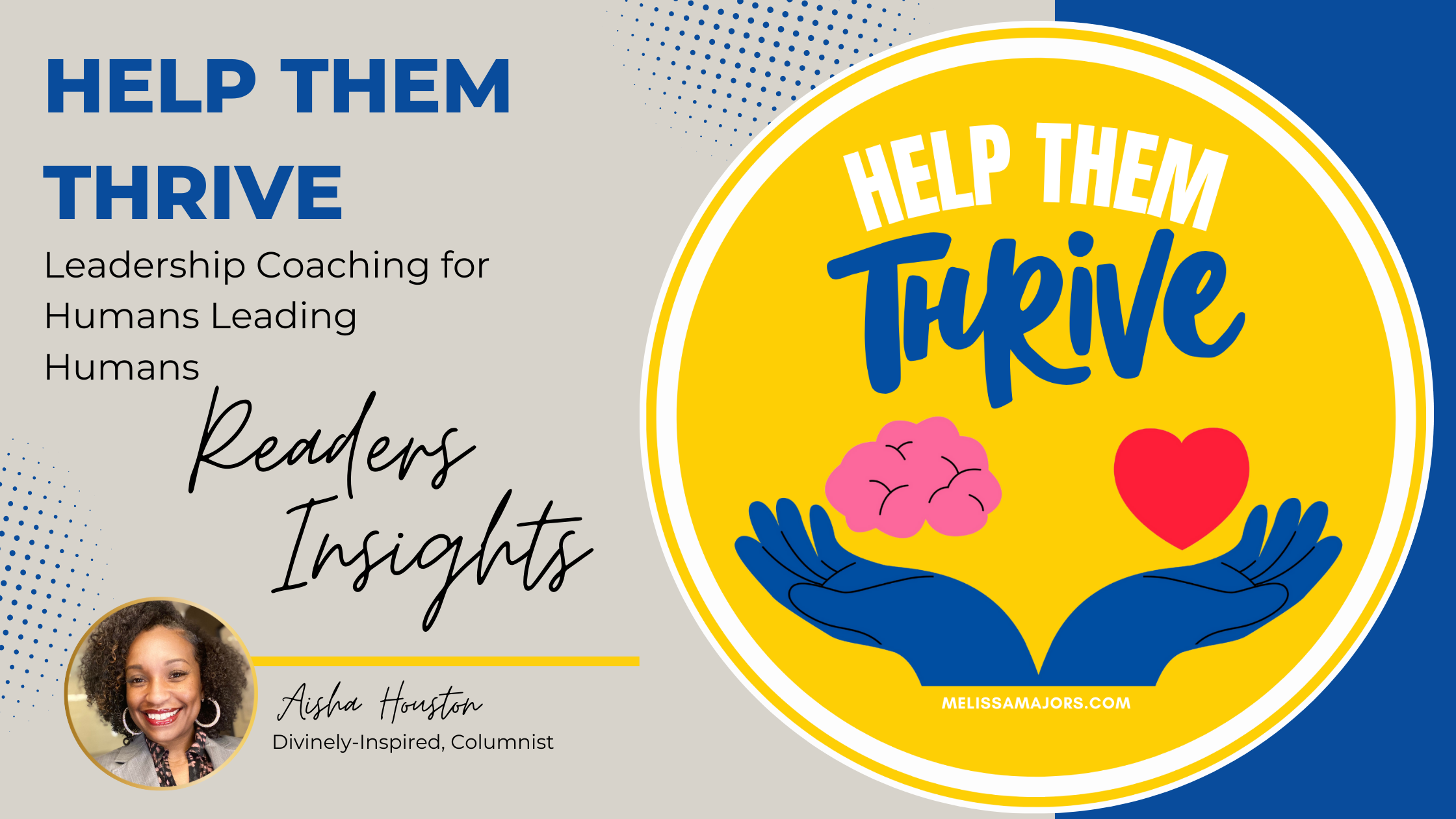Pesky Emotions
Melissa’s most recent book, Help Them Thrive, discusses an experience in which she labeled herself a hater! Are you surprised by her transparency? I was! But as she explains in the book, it’s okay to admit feelings of envy. Typically, it arises when we see someone who has achieved what we want to achieve but has yet to achieve it. We’re all human and experience envy and jealousy from time to time.
Does her experience of envy make her a “hater”?
No, it makes her human, she says. That statement somehow freed me from the stigma attached to being a hater. In all honesty, I can relate to being human AND experiencing thoughts of envy. Can you? I think this is a topic worth dissecting. If we go deeper into understanding the transition from experiencing pesky emotions to making better decisions, we’ll be more compassionate and eager to humanize ourselves and others.
In chapter 4, she describes being so confident and encouraged by others to take on a job for which she was ultimately rejected. With 20+ years of experience, she was convinced that no one else was better for the job…until there was. She was passed over and felt shame for not being selected. Another woman was chosen as the keynote speaker, and Melissa thought she “just couldn’t be that good.” Her inner voice negatively criticized the woman’s performance. Sadly, discrediting her helped soothe Melissa’s feelings of rejection. In other words, her default coping mechanism for the shame of being unchosen was to tear the other speaker down instead of lifting her up.
Does that feeling or thought sound familiar?
All shame aside, let’s be honest, whether we say it out loud or in our heads. Envy is a real human experience. It happens to most of us from time to time. And it’s okay. Let’s go deeper to understand why.
There was a mismatch between her judgment and the woman’s actual performance. Melissa realized she was experiencing thoughts of envy. She also discovered that the other speaker hadn't earned those critiques. She was brilliant, lovely, mesmerizing, and the type of speaker Melissa desired to become.
If we allow envy and other emotions to go unchecked, they can cause us to feel like victims instead of thrivers, ultimately creating an adverse effect on how we relate to others.
So, let’s take a minute to unpack these emotions.
When we feel rejected, we tend to create false narratives about why it happened. In this critical moment, we have a choice – react, or think, then act. If we simply react, our actions may be informed by false narratives and feelings of victimization, which often lead to actions we regret. Or, we can take a beat, correctly label our emotions, and choose to be humble and honest with ourselves. In the moment of awareness, allow grace to soften your heart and make a conscious decision to help yourself and someone else thrive. Consciously identifying thoughts and emotions might have to be practiced repeatedly, and that’s ok. It’s in the process that you develope habits to make you an even better leader.
According to research studies conducted by the authors of Emotional Intelligence 2.0, only 36% of people tested can accurately identify their emotions as they occur. Suppose we’re truthful with ourselves and consciously try to identify our emotions the moment we feel them. In that case, we gift ourselves with the opportunity to be free from pesky emotions and allow ourselves to thrive without the residue of mismanaged thoughts.
Human-centered leaders practice these behaviors because they care about the humans they lead and because emotional intelligence (EQ) is a critical skill that significantly contributes to success. According to studies of over 500,000 people, EQ accounts for 58% of performance in all types of jobs, and 90% of high performers are also high in EQ (Emotional Intelligence 2.0, Bradberry & Greaves). Think about that! High performers practice habits!
The good news is that the more we practice steps to shift from shame and blame to curiosity and better decisions, the more we increase our emotional intelligence. Thus, we become not just better leaders but more human-centered leaders. So, I implore you, friend, not to become trapped in the avoidance strategies of pesky emotions. Shift your perspective and allow your emotions to guide you into curiosity, intentionality, and better decisions.

